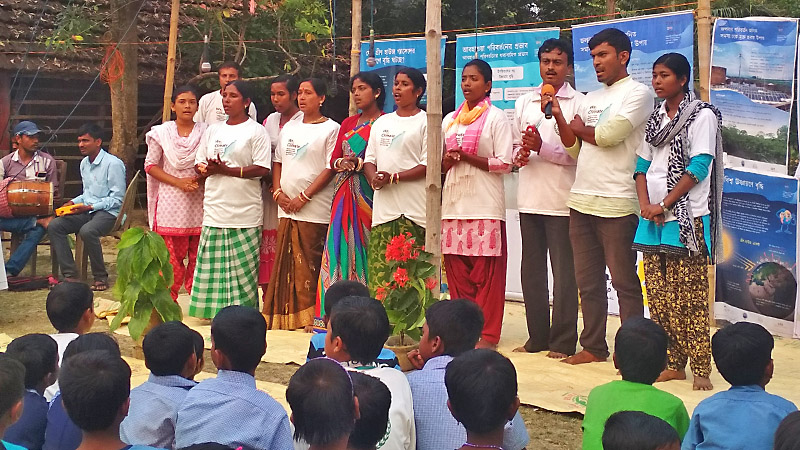The State Level stakeholder meetings on Climate Literacy and Marine Litter Management Campaign for West Bengal and Odisha states, India, were held in Kolkata and Bhubaneswar respectively on 21-22 December 2018.
The key objectives of the two workshops were to disseminate the lessons from the campaign to various stakeholders, as well as to gain insights from issues of community level vulnerabilities, implementation, and policy through a state level ‘samvad’, i.e. an interactive engagement. The interactive session focused on five issues: climate change adaptation in agriculture; allied sectors such as fisheries; marine litter; community based disaster management; and plastic waste management.
The engagement revealed issues of reducing fertility of land because of plastic use in compost; hybrid varieties of crops which require more chemicals; lack of access to technologies such as soil testing; reducing fish catch; loss of fish species; issues of integrating community level litter reduction with municipal services of waste segregation and management; and unsuccessful attempts by the community for mangrove plantations.
In response directions and potential interventions emerged from the bottom-up. These included shifting from plastic bags to locally made cloth bags which could also provide alternate livelihoods; reviving knowledge of traditional agricultural practices; campaigns for fishers dumping of fishing material in the sea; using locally available species of mangroves that are adaptable to local conditions instead of foreign varieties; and involvement of college students and youth in campaigns and policy planning.
Another key outcome of the engagements was the voicing of resolutions and steps towards change made by the communities involved in the campaign. Women SHGs in a village started selling cheap and locally made cloth bags to promote reduced use of plastic bags; schools have started making differentiated dustbins from local materials for segregated litter and waste management; students reported as having understood climate change from more practical everyday perspectives than the theoretical aspects they learned in school books; planned compost areas at household level through integration with Panchayat funds for waste management; and initiated engagements with Block level officials to expand coverage of these learnings.
These workshops were organised as a part of the project “Climate Literacy and Marine Litter Management” funded by GIZ in collaboration with Centre for Environment Education (supported by Ministry of Environment and Forests), which was a campaign focused on imparting awareness on climate change and promoting marine litter management in 250 coastal communities across 5 states – West Bengal, Odisha, Andhra Pradesh, Puducherry and Tamil Nadu over October to December 2018.
The two stakeholder engagements brought together participants from the community such as community organisers, teachers, SHG members, Panchayat members, Jangal Suraksha Committee members (community forest management committee), farmers, fishermen, and local businesses. Other stakeholders included university professors, government officials from various departments such as Fisheries and Climate Change, as well as national and international civil society organisations. ')}
